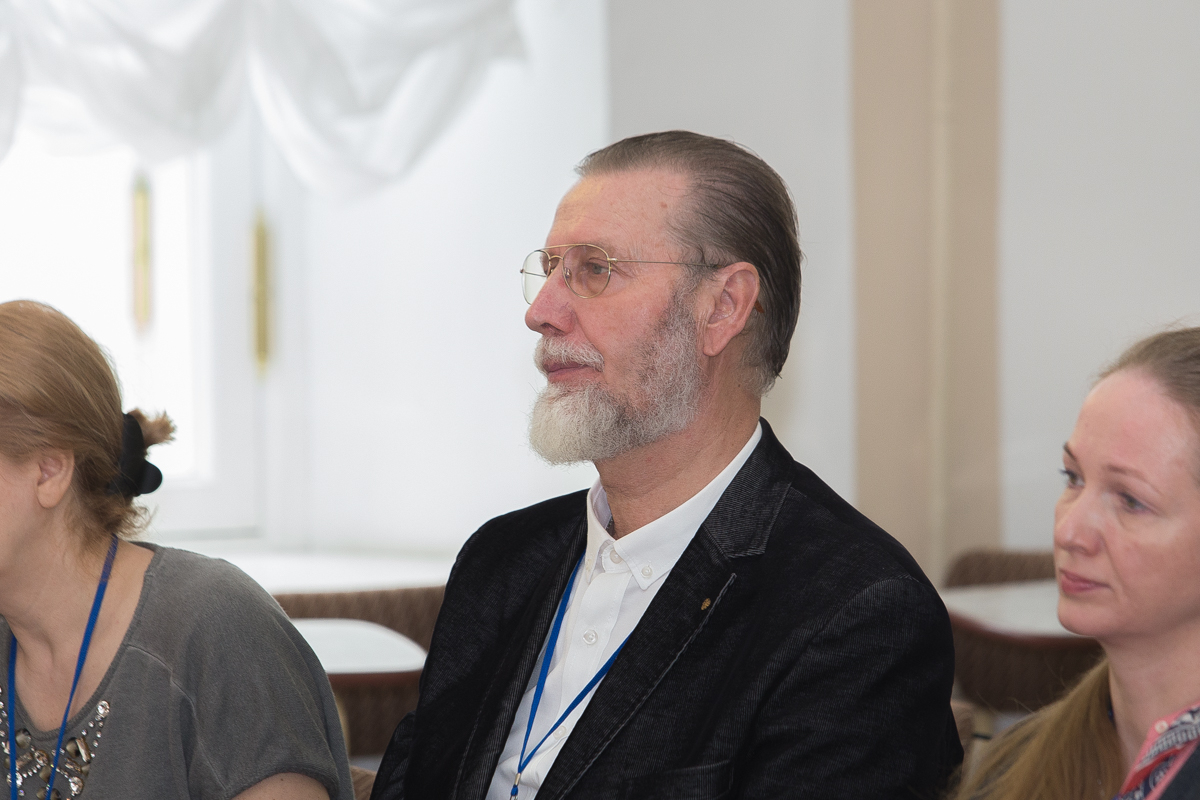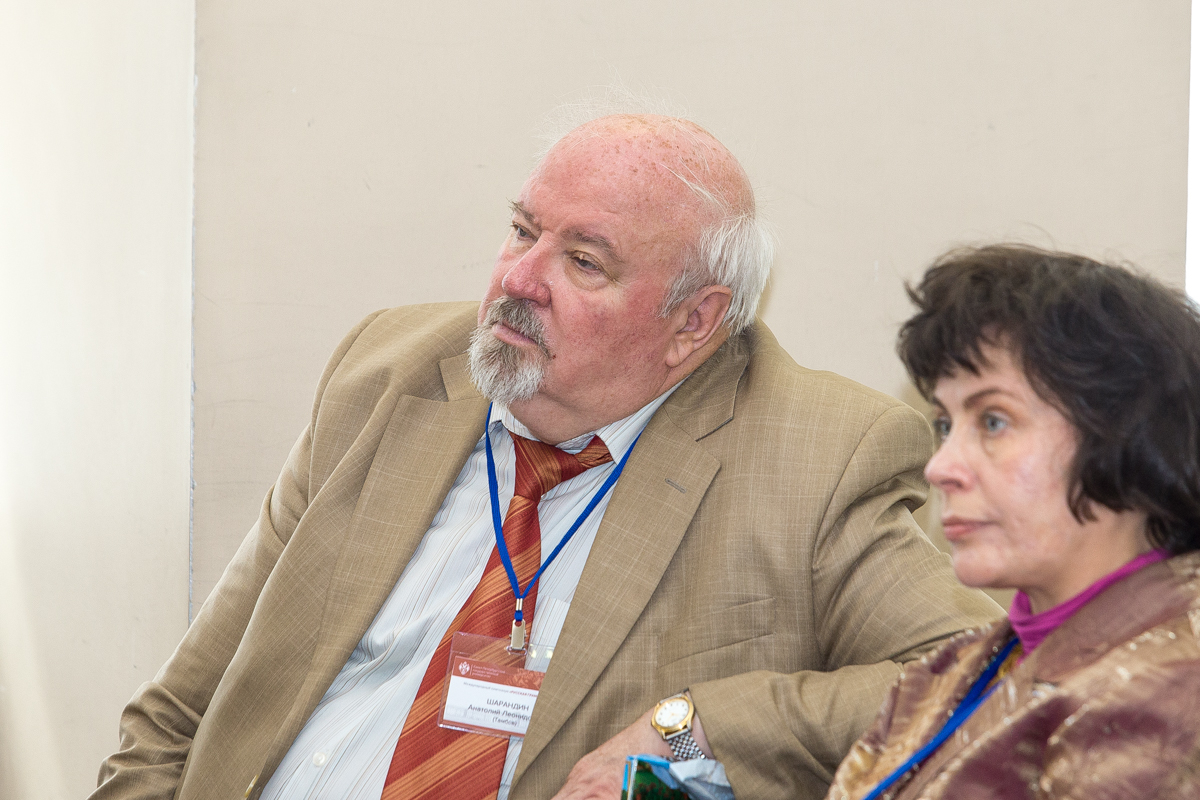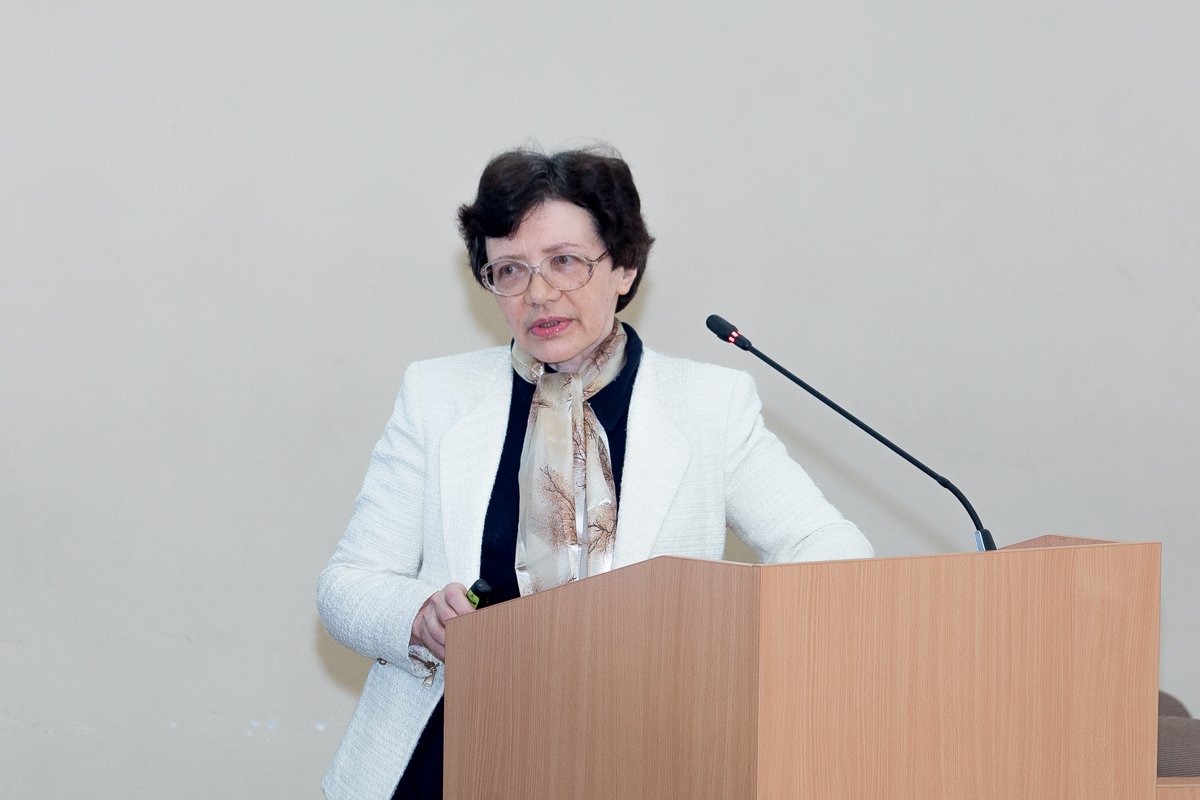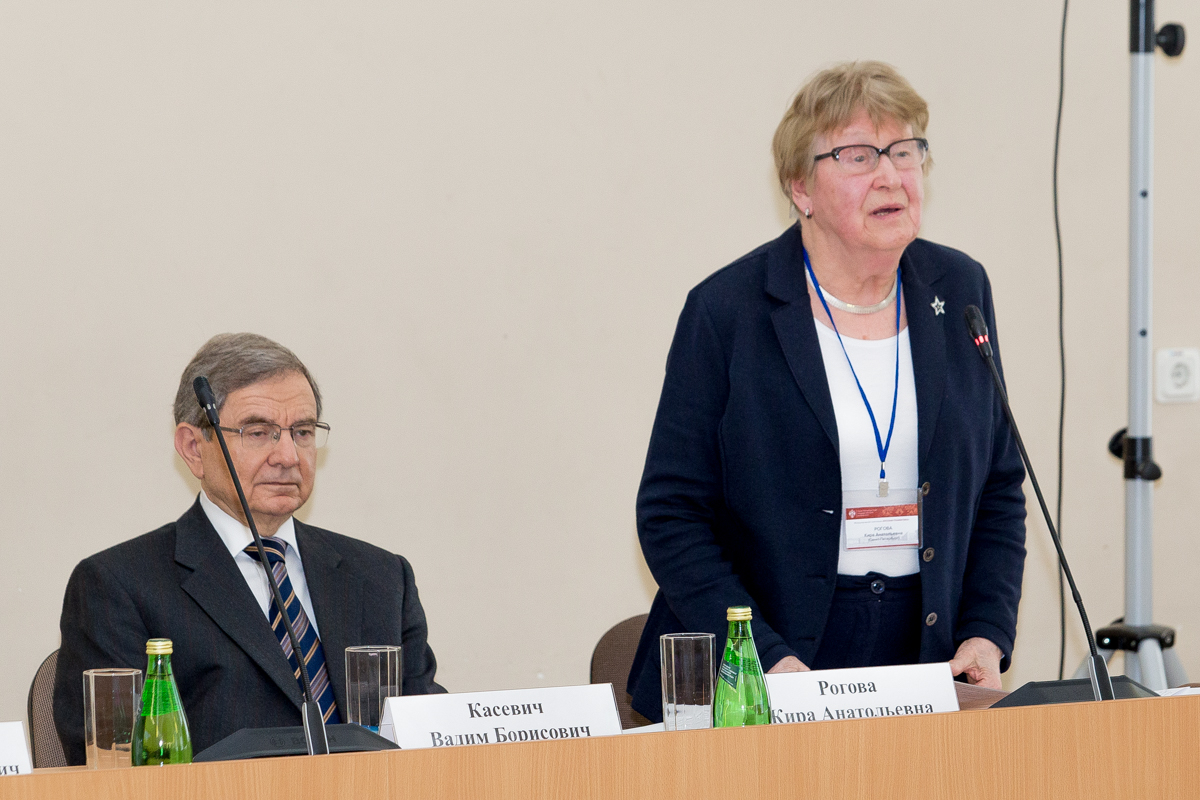Grammar 4.0: What’s the future of Russian?
St Petersburg University has held an international symposium “Russian grammar: Language structure and functioning”.
The leading linguists, lecturers, and lawyers discussed the opportunities to work out the new grammar of the Russian language, regulate Russian as official language, and discussed the recent research results in grammar.
The symposium is the third event in a series of the international research meetings that also include the “Russian Grammar: 4:0”, Pushkin Institute of Russian Language, Moscow, 2016, and a conference “Russian Grammar: Description, teaching, testing”, University of Helsinki, Helsinki, 2017.
Among the top priorities of the University is to study how the Russian language is functioning today, told SPbU Rector Nikolay Kropachev in his welcoming speech. The project involves philologists, linguists, lawyers, psychologists, political sciences, and IT specialists to ensure an integrated approach from the academic community and public sector.
Creating a common language space to ensure successful communication in Russia and abroad is essential, said Nikolay Kropachev. In legislation, medicine, mass media, or other spheres, standards of the Russian language and speech have not been legislated so far. “I am sure that the symposium is a step forward to our mutual understanding”, — said SPbU Rector.
In the 20th century, there were three grammars of the Russian language. Now we are facing a challenge: what will the next grammar be like?
SPbU Honoured Professor Kira Rogova
In 2010, we performed expert evaluation of the Academic Grammar published in 1980 and concluded that it described the norms and standards of speech of the Russian language that are approved today. Yet the philology is facing a number of challenges: how the language is used today is different from how it was used in the past, now we are confronting a phenomenon of multilingualism in Russia, and the methods of teaching the Russian language are different. All these make us take a broader perspective to linguistics studies by going beyond the rigid conventions of what the language is, said Kira Rogova.
The most recent official grammar of the Russian is a two-volume academic descriptive and prescriptive grammar of the Russian language Academic Grammar-80 edited by N.Iu. Shvedova and republished in 2005 by the Vinogradov Institute of Russian Language of the RAS. Its earlier editions were published in 1950 and 1970.
The plenary report by Professor Kira Rogova focuses on an approach towards the new grammar of the Russian language. The Grammar-80 introduced a shift towards semantics in linguistics, although the scholars had also approached the semantic analysis as an essential part of studying grammar, said the expert.
All grammar and its dimensions are approached as a complex system of semantic relations in speech, rather than the study of forms, and how they are objectified.
Professor of Petersburg University Lev Shcherba (1880–1944)
In working out the new grammar, we have to deal with two problems: first, it should be semantic-oriented, and, second, it should bring together a system-oriented approach and text-oriented approach. Today, the semantics of grammar is particularly concerned with a category of discourse, and some of the scholars suggest we should include it in the traditional framework of linguistics. As Kira Rogova puts it, discourse is regarded as setting and achieving the goals in speech production. Such shift in linguistics is more about semantics, said Professor Rogova. The question is how we can reflect how discourse influences semantics? We can develop modules for the new grammar on the historical and cultural aspects of how the language has been evolving, the styles of speech, and oral colloquial speech. All in all, we have to deal with the structure and content of grammar.
The plenary session also includes a report by the Dean of the Faculty of Law at SPbU Sergei Belov that focused on what role grammar played in how we used Russian as official language. He mentioned a number of cases from the court proceedings that told about how language variability and a lack of norms did influence decision-making at universities.
Often how we interpret a document can affect our lives.
Dean of the Faculty of Law at SPbU Sergei Belov
He also told us through how the Russian language is divided into sociolects that are the dialects of social groups and that today we should bring together linguists, lawyers, and legislation.
We must, according to the Federal Law on the State Language of the Russian Federation dated 2005, comply with the norms of the contemporary Russian literary language. No other requirements, more detailed ones, are found in the document.
According to the Decree by the Government of the Russian Federation, the Ministry of Education and Science is granted a right to compile a list of grammars, guides, and dictionaries that set the norms of the contemporary literary Russian language as official language and standards of speech. Such list was approved by the Ministry of Education and Science in 2009. Yet it is far from being perfect, says Sergei Belov. First, only some of the publications are authoritative, second, few of them stipulates norms how we should use language, some of them are difficult to use if you are not a linguist.
The second part of the Decree entitles the Ministry of Education and Science to define the rules of spelling and punctuation. The official rules of punctuation were approved in 1956. “We have to refer to the rules approved 60 years ago, as no other rules are officially approved”, — said Sergei Belov.
The requirements as to how work out the rules of the Russian language must be the same as for the requirements in legislation: they should be clear, concise, easy to understand, and unambiguous. If law does not conform to these requirements, it is considered as non-constitutional as it can be interpreted in different ways and therefore break the principle of equality, says the expert.
The plenary session also included a report on an integrated description of the language by Professor Vadim Kasevich from SPbU, a report on how the Slav linguistics could enter the new grammar by Professor Andrei Sobolev from SPbU, and a report on the results of the study how children learnt Russian grammar by Professor Maria Voeikova from SPbU.
The Director of the Centre for Grammar Studies in the Vinogradov Institute of Russian Language of the RAS Galina Kustova told about the transition periods in language and problems of how they could be grammatically approached, while Associate professor Fedor Pankov from MSU told about how our worldview was reflected in grammar.
The symposium was organized by St Petersburg University, Ministry of Education and Science of the Russian Federation, International Association of Teachers of Russian Language and Literature, and Russian Society of teachers of Russian Language and Literature.





